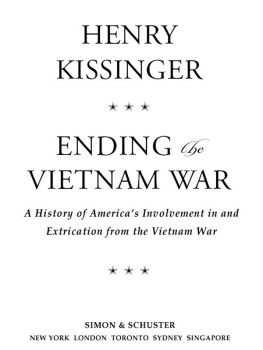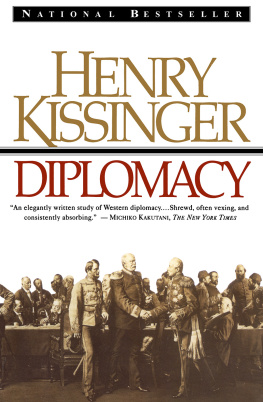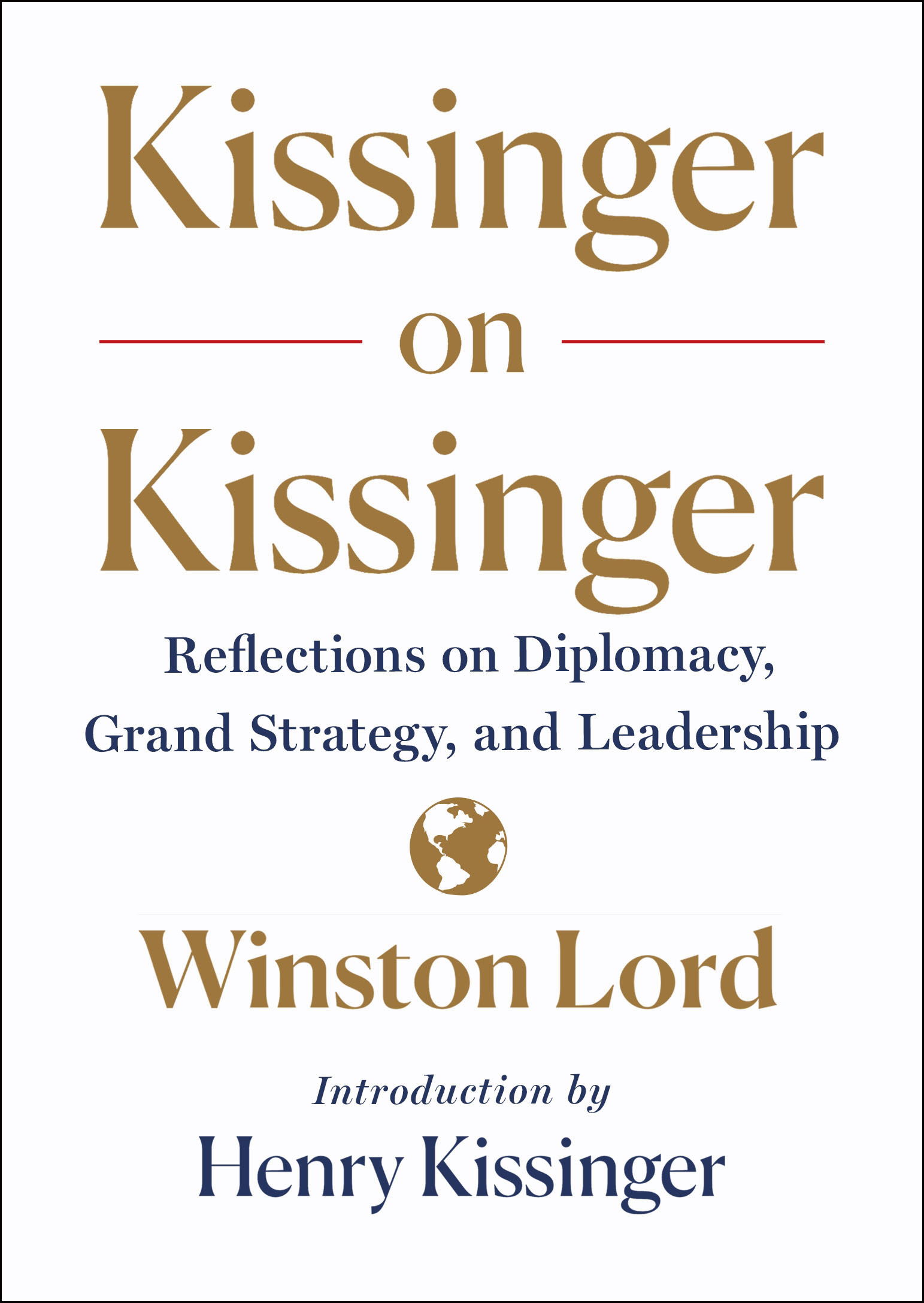The author and publisher have provided this e-book to you for your personal use only. You may not make this e-book publicly available in any way. Copyright infringement is against the law. If you believe the copy of this e-book you are reading infringes on the authors copyright, please notify the publisher at: us.macmillanusa.com/piracy.
Everything depends, therefore, on some conception of the future.
Two years after I wrote that this principle should shape Americas foreign policy, President Nixon asked me to serve as his national security advisor. Given our histories with each other, the opportunity was not one I had expected. But the imperative of a conceptual design for the conduct of foreign policy was a conviction Nixon and I shared.
In 1969, the Nixon Administration inherited a perilous landscape at home and abroad. We strove to tackle these challenges with strategic vision. While I have written extensively about our journey, this presentation of it is informal and colloquial; it is my sole oral history. I did not expect its evolution. Winston Lord and K.T. McFarland persuaded me to participate in an hour-long interview to cap a series of videos about Nixons foreign policy. Their preparation and determination prompted five more sessions.
Like all oral histories, this is a brief for my case. I did not go out of my way to be self-critical. My interlocutors have been my colleagues and friends for many decades. But they probed the contentious. Their objective was to distill my views on the key foreign policy issues of the years 1969 to 1974, and to do so in a fashion that interested the generations that succeeded us, for whom this period may seem like ancient history.
This is, however, more than a recollection of milestones. It offers insights into my relationship with President Nixon, and the arts of leadership, negotiation, and the making of foreign policy.
Due to the provenance of these interviews, they cover only my years of service under President Nixon, who, after a landslide reelection, was poised for a truly promising second term, particularly in foreign policy. We had opened China. We had made progress with the Soviet Union. We had made inroads in the Middle East. But Watergate, Nixons resignation, the erosion of executive authority, and the resurgence of congressional custody placed enormous demands on the Ford Administrations effort to sustain Americas credibility. Under President Gerald Ford, we managed to retain the thrust of our relations with Beijing and Moscow, progress in the Middle East, reshape our policy in southern Africa, and explore the coming challenges on the global agenda.
Though much has been transmuted since that era, many of its guiding tenets remain relevant. Some should be considered anew. Americas foreign policy should proceed from strategic blueprints rather than reactions to discrete events. Statesmen must make courageous decisions with imperfect, often ambiguous information. In negotiations, Americas point of departure should be a clear exposition of its needs and an understanding of its interlocutors history, culture, and goals.
Above all, what has not changed is the indispensability of American leadership. Its exercise compels us to integrate our interests and valuesas I wrote in my first book, A World Restored, more than half a century ago, to attempt to reconcile what is considered just with what is considered possible.
This book is the written version of Henry Kissingers one and only oral history, and it came about more or less by accident.
Several years ago, starting in 2014, K.T. McFarland and I agreed to steer a series of foreign policy panels for the Nixon Legacy Forums, a joint enterprise sponsored by the Richard Nixon Foundation and the National Archives and Records Administration. They were the brainchild of Nixon Administration alumnus Geoff Shepard, who had organized some three-dozen panel discussions with former White House officials to reflect on the thinking and processes behind the various domestic and foreign policy initiatives of the Nixon Administrationcollective oral histories, if you will.
Many of the panelists had already done individual oral histories but had not appeared together in a group format. The idea was that the whole would be greater than the sum of the parts; that the panelists would build off each others recollections to create a more complete picture. The sessions were recorded, shown on C-SPANs American History TV channel, and the videotapes made available through the Nixon Foundation.
K.T. and I ran four foreign policy panels from 2014 to 2015: The Revitalization of the National Security Council; The Opening to China; Soviet Dtente and the SALT Negotiations; and Vietnam and the Paris Peace Accords. These, together with an earlier panel on the Middle East, covered the major foreign policy initiatives of the Nixon-Kissinger collaboration.
I wrote the outlines for each discussion, which were circulated to the panelists in advance to refresh their recollections. K.T. led the discussions, drawing staff members out to describe their own experiences and contributions. The original plan was to cap off this series with a one-hour video interview with Dr. Kissinger, for his reflections on these key initiatives.
K.T. and I sat down with Dr. Kissinger in his office in December 2015 for the session. His memory was phenomenal, especially since he is in his nineties, and we were asking him to recall events that occurred half a lifetime before. As the hour drew to a close, we realized we had barely scratched the surface. So we persuaded Dr. Kissinger to do a second interview and a third and so on. He recounted strategic objectives and major milestones, punctuated throughout with personal anecdotes. The interviews became more of a conversation among old friends and colleagues, with the stories Dr. Kissinger told seeming as fresh as if they had happened the day before.
Early in our exchanges, Dr. Kissinger confided that he had never done an oral history, which surprised us since he had given hundreds of interviews over the decades, and he is clearly one of the most outstanding national security figures of the postwar era. So we teased out our series of exchanges to expand beyond Kissingers time in government to include his reflections on diplomacy, on grand strategy, and, ultimately, on leadership. In all, we conducted six video interviews with Dr. Kissinger over the course of a year, finishing in December 2016.
We both realized the historic significance of our projectan extensive multipart interview with Kissinger, in his own words, spontaneously from memory and from his own perspective. But these interviews were also important to us personally. I had been constantly at Kissingers side throughout the period, first at the National Security Council and then at the State Department. K.T. had been the junior-most member of the National Security Council staff, working first as a part-time night shift secretary during her college years and then as his research assistant. Our friendship with Dr. Kissinger has now spanned almost half a century.
The lessons we learned while working for Dr. Kissinger shaped our own thinking over the decades as we both went on to hold national security positions in and out of government. I became president of the Council on Foreign Relations, ambassador to China, and assistant secretary of state. K.T. went on to hold senior positions on the Senate Armed Services Committee, at the Pentagon, as a television news analyst and columnist, and most recently as deputy national security advisor. We, like so many others, have had the benefit of decades of his wisdom.


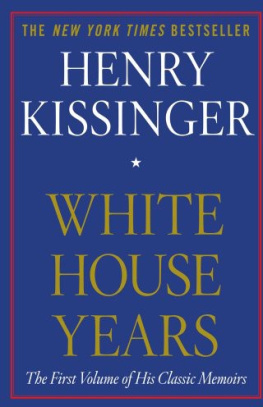
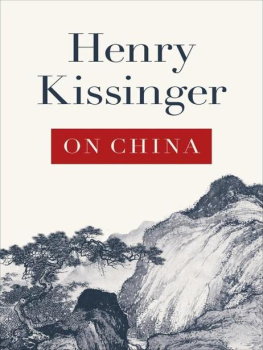
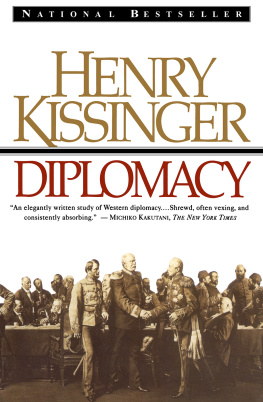
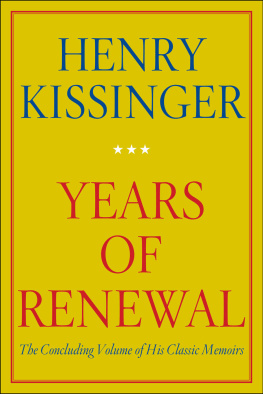
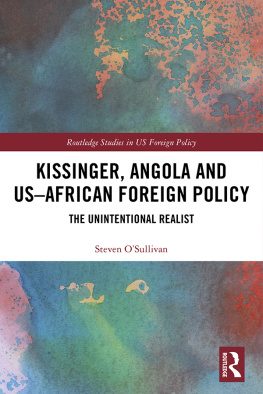
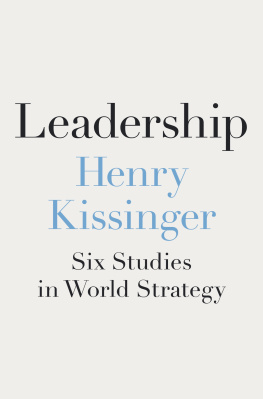
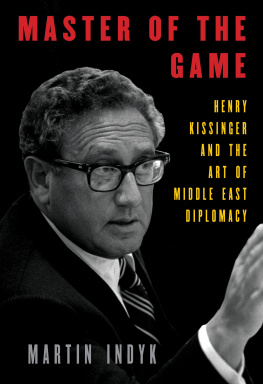
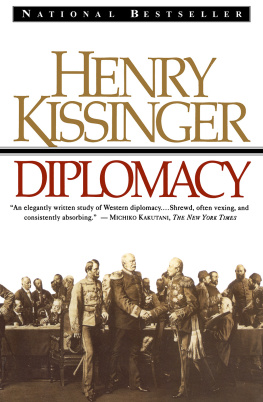
![Kissinger - Years of Upheaval: [VOL2 Classic Memoirs]](/uploads/posts/book/181244/thumbs/kissinger-years-of-upheaval-vol2-classic.jpg)
